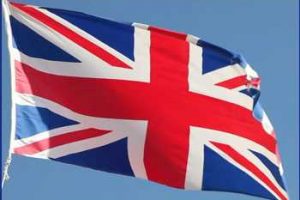UK Inflation Strongest Since 1992

UK consumer price inflation accelerated at the fastest pace since 1992 in February, largely driven by fuel prices, the Office for National Statistics said on Wednesday.
Consumer price inflation rose to 6.2 percent in February from 5.5 percent in January. The rate was forecast to rise moderately to 5.9 percent.
This was the highest inflation rate in the National Statistic series which began in January 1997, and the highest rate in the historic modeled series since March 1992, when it stood at 7.1 percent.
Inflation data adds to the pressure on the Chancellor to offset more of the cost of living crisis in today’s fiscal Spring Statement, Paul Dales, an economist at Capital Economics, said.
With inflation now more than three times the Bank of England’s 2 percent target, the Bank of England may reassess its dovish tone after it raised interest rates to 0.75 percent last week, the economist said. The rates are likely to rise to 2.00 percent next year.
Inflation is set to peak a little above 8 percent in April as higher petrol prices combined with the dramatic increase in the electricity/gas price cap, James Smith, an ING economist said. The situation later this year looks less worrisome given the pullback in gas prices.
Data showed that core inflation that excludes energy, food, alcoholic beverages and tobacco, advanced to 5.2 percent from 4.4 percent in the previous month.
The largest contributions to the inflation came from housing and household services and transport. There were no large offsetting downward contributions to change.
Month-on-month, the consumer price index rose 0.8 percent, in contrast to the 0.1 percent fall in January. Monthly inflation was the fastest seen between January and February since 2009.
Another report from the ONS showed that output price inflation increased to 10.1 percent, in line with expectations and the fastest since September 2008, from 9.9 percent in January.
On a monthly basis, output price inflation came in at 0.8 percent versus 1.2 percent in January. The expected rate was 0.9 percent.
Input price inflation advanced to 14.7 percent in February from 14.2 percent a month ago. Economists had forecast the rate to slow to 13.9 percent.
Month-on-month, input price growth eased slightly to 1.4 percent from 1.5 percent but remained above the economists’ forecast of 1.2 percent.
In January, house price inflation eased to 9.6 percent in January from 10.0 percent in December, the ONS said in a separate communiqué.
The average UK house price was GBP 274,000 in January, which was GBP 24,000 higher than this time last year. London continued to be the region with the lowest annual growth at 2.2 percent.
Source: Read Full Article
